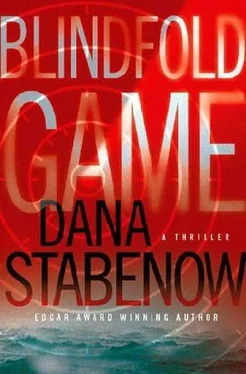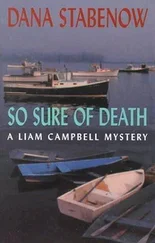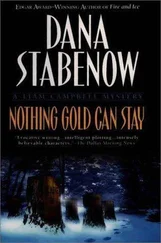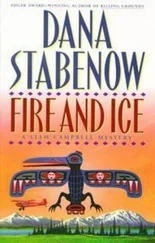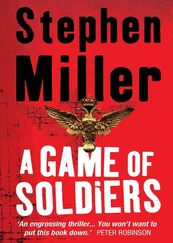“And?”
“My father is a creature of habit. He goes home to sit down to dinner with his family at six P.M. every day of his life.”
The Chinese watched him with a menacing gaze meant to intimidate, very similar to those of the guards posted round his ship.
The younger Noortman continued to speak. His father would have been proud of his careful, detached manner. He hoped he didn’t look as frightened as he felt, but he could either wait for his doom to be pronounced or he could try to build a future of his own. Desperation was a highly motivating force. “I notice that the identification numbers on the containers have been very recently renewed. I notice also that they have been reinforced to carry heavier loads.”
“You’re a very noticing fellow,” the Chinese said.
It was not a compliment. “Very,” Noortman agreed, not without an increase in heart rate. There was something very initimidating-and not a little exciting-about the Chinese’s cold eyes. “And then I remembered reading in the newspaper one month ago of the taking of a ship loaded with aluminum ingots in the Makassar Strait. Pirates boarded her at four in the morning, shot the captain and crew, and tossed their bodies overboard, and vanished into the night.” Noortman paused. “One of the crew survived. He was pulled out of the water by a fisherman the next day, and he lived long enough to tell the authorities that the head pirate was a Chinese man in his thirties or forties, wiry, with a very dark tan and black hair cut very short, like American soldiers in the movies.”
He paused, and let his eyes wander over the Chinese’s brush cut. “The ship has not been found. Neither has its ten-million-dollar cargo.”
The Chinese said nothing, calloused hands remaining loose at his side, but there was an alert set to his head and a thoughtful expression in his eyes that had not been there before.
“It was an interesting story, and I looked for more, but there was nothing. The ship and its cargo simply disappeared.” He stopped to consider, and added, not without admiration, “It must have been very carefully planned, to be able to make a ship of that size disappear. Not to mention, Mr. Fang, seventy metric tons of aluminum ingots.”
Fang’s expression did not change. “Supposing I was this Chinese pirate,” he said. “According to the story you read, I made a ship disappear, and I made its crew disappear, and I made seventy metric tons of aluminum ingots disappear. How hard would it be to make you disappear as well?”
“True,” the younger Noortman said, nodding. It required an effort to keep his expression as bland as his voice, but he thought he succeeded quite well. “Very true. But I was able to figure out who you were and what you were doing here the first time I saw you and your ship. If I could do so, so, too, could others.” He let Fang think this over.
Fang did, and gave a slight nod. Possibly he was reluctant to kill his pet customs agent’s son. Possibly he was intrigued by the younger Noortman’s self-assurance. At any rate, he stayed his hand, for the moment.
“Had I been in charge of-disbursing, shall we say?-the cargo in question,” Noortman said, almost dreamily, “I would, first, have done a better job of replacing the identification numbers on the containers. I know, I know”-he raised a hand, palm outward, although the Chinese had yet to say anything-“given the amount of freight traveling the oceans these days, it is very hard to track down any one container. But, as I said, if I could figure out what is going on, so could someone else, so why take the risk when a decently faked registry, a good stencil, and a steady hand is all that is required to ensure disinterest on the part of the world’s customs services?”
He didn’t wait for an answer this time. “Secondly, I would have made sure that no one customs agent in any port had total authority over the cargo. Thirdly, I would have made arrangements to off-load the cargo in more than one port, and possibly even to transfer the cargo to another ship between ports.” He paused to consider this. “Possibly. It is unwise to put one’s trust in any one agent in any one port, and it is unnecessary, especially if a good forger provides a believable provenance for the cargo.”
The Chinese regarded him meditatively. The moments ticked by. Noortman didn’t squirm. Eventually, the Chinese man said, “How did you know my name?”
Noortman smiled. It was a charming smile, attractive, infectious, disarming (the gold tooth would come later), and he knew it and employed it selectively. “I heard one of your men call you by name yesterday.”
Fang’s lips tightened. “Which one?”
Noortman’s smile faltered. “I don’t know. One of the guards you have stationed round your ship. I think the guard in charge.”
Without turning his head, Fang said sharply, “Win!”
A guard trotted over. “Go to the bridge and wait there until I come.”
The guard, a young man, impassive as his boss, gave a nod and trotted to the gangway.
Noortman never saw him again. Fang was not a forgiving employer. It was the first lesson Noortman learned in association with the sometime master mariner and full-time pirate, and it wouldn’t be the last, but it was by far the most important.
Noortman resigned his position that evening after dinner, in his father’s study. The elder Noortman was at first disbelieving and then angry. He came out from behind his desk like the wrath of God and hit Noortman hard enough to loosen three teeth. Noortman got back on his feet and picked up a thick book his fall had knocked from the shelves. The next thing he knew his mother and sisters were pulling him from his father’s body, supine on the floor with his face unrecognizable beneath a wash of blood. He couldn’t see that shade of red today without remembering a flood of pure joy.
That had been nine years before. Noortman was now thirty-four, with a growing reputation in the international maritime freight business, a slightly less admirable but no less respectful one with Interpol, and healthy bank accounts in Hong Kong, Zurich, and Nassau. Over the years, Noortman had become a master of the shell game of international maritime freight, moving containers and ships as if conducting a game on a chessboard. It was challenging, exciting work, not least because he knew very well that if caught practicing this commodities sleight of hand the ocean-view apartment in the Hong Kong high-rise would be replaced by a cot in a twelve-by-twelve cell. And that was only if he were arrested by Western authorities. He shuddered to think of the consequences of being arrested in his native Singapore.
He avoided targeting U.S. and Russian-owned ships as they were known to carry small arms, and added British ships to the no list when they began hiring ex-Gurkha soldiers for on-board security. He took pride in the fact that he had done his work so well that in nine years Fang had faced serious opposition from only three crews. None of them survived the experience, of course. Fang was insistent on leaving no witnesses behind, and he especially hated cameras of any kind. The new cell phones, with their photograph-taking capabilities, were a target of particular abhorrence, and Fang insisted on being the only member of any of his crews who carried a phone. If anyone protested on shore, their services were declined. If anyone protested at sea, they joined the crew of the captured vessel as shark food.
From the small bits that Fang let fall during their association, Noortman knew that Fang had been raised in a hard school. Son of a Shanghai prostitute, father unknown, he took to the sea as a boy and grew up smuggling goods between Taiwan and China. He said he had a master’s license, but Noortman had never seen it. He knew how to handle a ship, and more important for their business, he was extremely efficient at hijacking them. Noortman regarded himself as the brain of their operation and Fang as the brawn, but he never made the mistake of saying that to Fang.
Читать дальше
